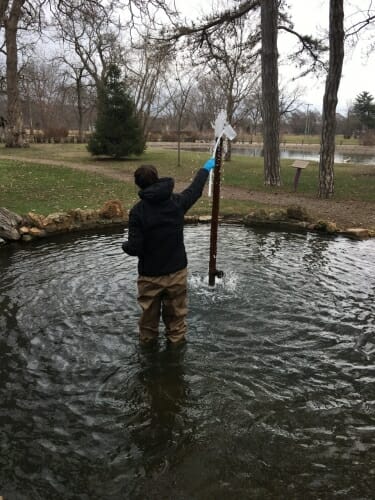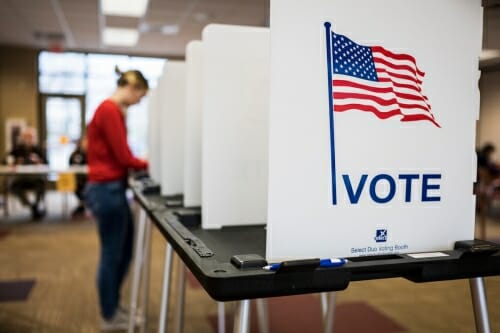UW2020 competition marks four years with Round 6 call for proposals
The Office of the Vice Chancellor for Research and Graduate Education is accepting applications for funding of high-risk, high-impact research proposals.
The competition, UW2020: WARF Discovery Initiative, is in its sixth round since launching in fall 2015, offering funds for investigative and infrastructure projects at UW–Madison. The goal is to support collaborative, multidisciplinary and transformative research.

Matthew Ginder-Vogel’s UW2020 project, “Core Facility for Advanced Water Analysis,” is underway to address campus needs for research instrumentation, while providing additional opportunities for collaboration among water researchers at UW–Madison. Photo: Lily Schacht
Round 6 project funding will span one to two years, depending on the needs and scope of the project. Awards range from $100,000 to $500,000. A brief abstract is due as an initial submission by Oct. 15 and then a full proposal by Dec. 9.
UW2020 is funded by the Wisconsin Alumni Research Foundation (WARF) with combined funding from other sources. Final selections are made by the UW2020 Council, a group of faculty from all divisions of the university.
Graduate School funding has supported graduate student involvement in some UW2020 projects. Students gain research experience in novel fields while contributing insight and creativity to their research teams. Profiles of graduate students working on UW2020 projects can be found on the UW2020 Graduate Students webpage.

Some early rounds of UW2020 projects, such as Young Mie Kim’s “Silent Targeting, Dark Campaigns, and Ill-Informed Decisions: Microtargeting in Election Campaigns and Its Implications for Democracy,” are showing results and leveraging extramural funding. Photo: Jeff Miller
“Strategic investments, such as UW2020, in scientific research and in acquiring tools to support our researchers encourage the development of new high-risk and high-return discoveries,” says Steve Ackerman, interim vice chancellor for research and graduate education. “UW2020 is meeting all of the goals we had set for it four years ago, including innovation, exploration and interdisciplinary work. The earlier rounds of projects have made us more competitive as we seek extramural funding and are already showing a strong return on our investment.”
Previous UW2020 rounds have funded a combined 83 projects representing all divisions on campus, ranging from improved treatment of post-traumatic stress disorder (PTSD) in prison inmates to electrical simulation for enhanced wound healing and the establishment of a Radio Astronomy Data Science Center at UW–Madison.
